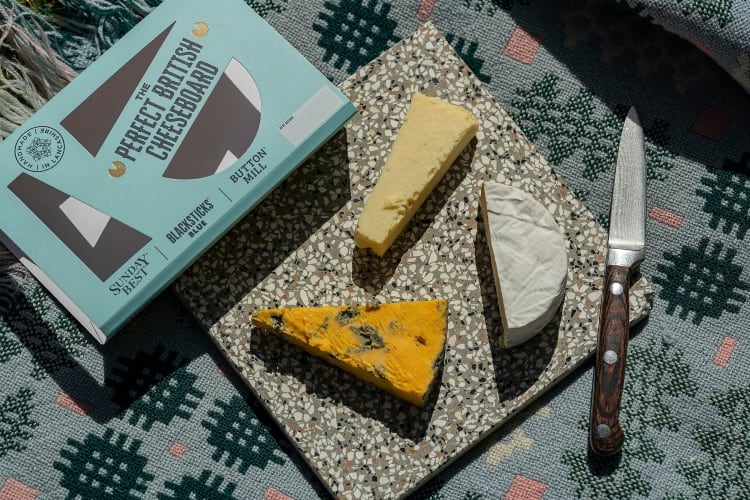The Made Smarter Adoption Programme in the North West, a collaboration between UK government and industry designed to support the increased use of digital technologies, has worked with dozens of SMEs across the entire supply chain from farm to fork to capitalize on the multitude of benefits that digitalisation offers.
These include: cheese and yogurt makers; salad, fruit and potato growers; bakers, confectioners, and dessert manufacturers; breweries; health and nutrition producers; as well as businesses making baby food, black pudding, flavorings, and pet food.
Through impartial technology advice and match funding on technology projects, digital transformation workshops to help manufacturers take their first steps, a leadership program, digital technology internships, and skills development, it is helping businesses in the sector increase productivity, achieve sustainable growth, and create new high value jobs.
Digital transformation has also proven to be critical to food and drink manufacturers of all sizes over the last 18 months, with the combined impacts of the coronavirus pandemic, Brexit, and the drive towards net zero.
Butlers Farmhouse Cheeses, in Preston, has been wrestling with supply chain disruption during the pandemic.
Matthew Hall, commercial director, said investing in software systems enabled the business to be more flexible and agile.
“As an artisan producer we are about innovation, it’s in our DNA,” Hall said.
“That includes the manufacturing process which can be labor intensive but adds value to that finished product, but then there are other auxiliary processes which are labor intensive but don’t add value.
“Working with Made Smarter we identified the solution lay with planning and systems, and we looked to increase and integrate that robust process control across our departments. That enabled greater transparency of information and allowed us to be more agile, to have that information at our fingertips and be able to react to changing customer demands.”
Some food and drink manufacturers have benefited from the Made Smarter Leadership Programme, designed to equip SME managers and directors with the strategic view and the skills needed to successfully pursue smarter manufacturing.
Made Smarter, which has supported hundreds of businesses to deliver an additional £176m in gross value added, is now hoping to reach more SMEs across the entire food and drink supply chain and has produced a free guide to help demystify digitalization and drive technology adoption.
The document includes topics such as how to get started with digital technologies, infrastructure management, increasing control, reducing waste and boosting sustainability, enhancing traceability, and how to hit new trends.
Alain Dilworth, North West adoption programme manager at Made Smarter, said, “While the North West is home to some of the food industry’s biggest names such as Nestle, Heinz, and Kellogg’s, it is also brimming with innovative small and medium sized enterprises across the entire supply chain, working hard to ensure we continue to enjoy our favorite food and drink from farm to fork.
“The triple challenge of the pandemic, Brexit and the net zero agenda, have created a perfect storm for the food and drink industry, impacting SMEs more than most. But despite these pressures, many of these businesses have shown resilience and determination to keep up with the fast-moving industry and are working with Made Smarter on their digital transformation.
“From using robotics and process control technologies to improve sustainability and automating data collection points to create a line of traceability, technologies are not only helping producers overcome challenges, but also unlock a whole host of opportunities.
“To help demystify digitalization and help SMEs to their first step, we have produced some crucial guidance as well as explained why implementing digital tools is such a priority in this sector.”
Other dairy-related companies benefiting from Made Smarter-supported technology projects are: Antonelli Bros, a manufacturer of ice cream cones, based in Irlam, invested in technology to enable data and systems integration; Lancashire Farm Dairies, a natural yogurt producer based in Rochdale, invested in an end-of-line robotic palletizer to boost productivity; Dewlay Cheesemakers, based in Garstang, invested in data and systems integration technology to enable real-time data to monitor efficiency and yields to help increase productivity; Applied Nutrition, a manufacturer of sports nutrition products, based in Kirkby, is another business able to react more readily to the Covid-19 crisis, after receiving digital investment funding support for a project. The company used a digital transformation workshop to figure out how to increase its production capacity, and solutions such as robotics and process control automation were identified; The Protein Works, a manufacturer of protein powders, snacks, supplements, and foods, based in Runcorn, has been able to capitalize on the growing global personalized-nutrition market after investing in a bespoke software solution to fully automate the process from customer order through to product dispatch; Kendal Nutricare, based in Kendal, a manufacturer of nutrition products including infant formulas and baby cereals; and The Protein Lab, a manufacturer of protein powders and supplements based in Blackpool.

